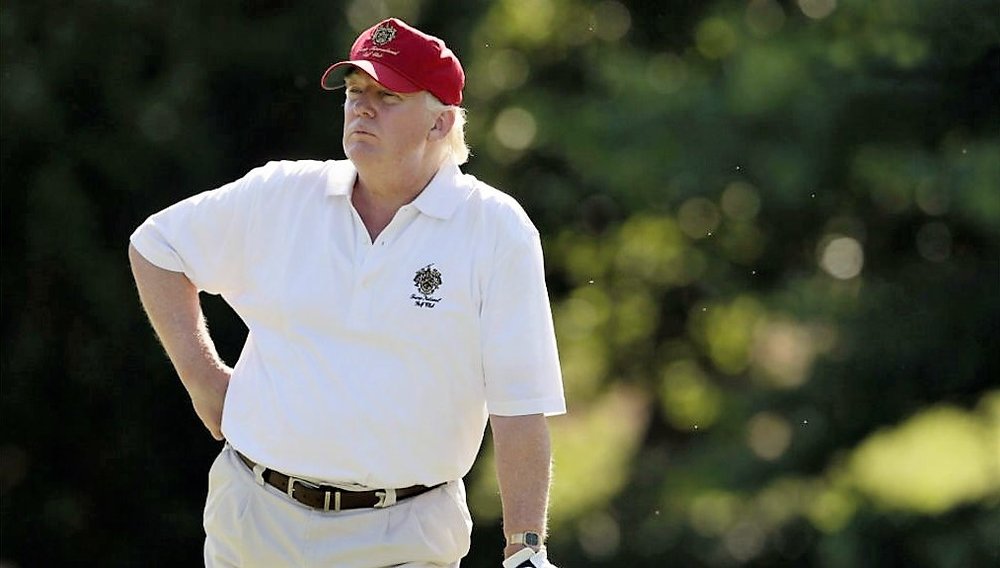Trump and a nuclear ball in his court

TEHRAN - Holding a high head after some trailblazing accords with giant European and East Asian companies, Iran is now introducing the United States as the isolated party to the landmark 2015 nuclear deal, the country that has to make some move to put itself in a more synchronized pace with the rest of the world.
“America is putting a spoke in the wheel, but on the other side cooperation with Europe is booming,” Iran’s nuclear chief Ali Akbar Salehi said on Sunday, implying the ball is now in the U.S. court.
He dramatized that cooperation with Europe is growing so fast that in some fields “we don’t have enough men” to carry things out.
Salehi’s remarks come against the background of the United States having imposed new sanctions on Iran in contrast to the terms of the nuclear deal, officially called the Joint Comprehensive Plan of Action (JCPOA).
Recently Senate passed a legislation which would sanction Iranian entities involved in the Islamic Republic’s missile program. This defied UN Resolution 2231 which endorsed the JCPOA and also specified that new sanctions on Iran would violate the deal.
Since President Trump took office, Europe and the United States have pursued increasingly different courses on Iran, casting doubt over the future of the nuclear accord, which limits Iran’s nuclear activities in exchange for sanctions relief.
The U.S. fumbling with the post-JCPOA situation has been coming in the form of narrow-margin approval of the nuclear deal in late-moment quarterly instalments. In April, the administration informed Congress that Iran was in compliance with the deal, a certification it must make every 90 days. But it also put the accord under review — with the option to abandon it entirely. On Monday, the administration plans to certify again. Officials have said the policy review should be completed before the next certification is due in October.
As with Europe, a couple of weeks ago Iran signed its most recent landmark post-JCPOA deal with the European oil giant Total worth about $5 billion. Elsewhere, just this week the French carmaker Group PSA said its sales nearly tripled in the Middle East and Africa in the first half of the year because of new production in Iran.
Ellie Geranmayeh, a senior policy fellow at the European Council on Foreign Relations, recently told The Washington Post, “There is a clear division between where the Europeans are going and where the Americans are going on Iran. The Europeans have embarked on a path of rapprochement. The U.S. is looking at a policy of isolationism and containment.”
The optics of Total’s $5 billion investment, which analysts say has the backing of the French government, “were seen as, ‘We’re going ahead despite all the uncertainties of the U.S. administration,’?” Geranmayeh said. “The Europeans are messaging: ‘Our foreign policy on Iran now is different to yours in Washington. We’re not just going to automatically follow suit.’”
As Iran and the rest of the world are attending to the real expected advantages of the JCPOA, the U.S. is still involved in testing its reliability, only to be represented by Tehran as the one party which has not crossed the threshold yet.
SP/
Leave a Comment